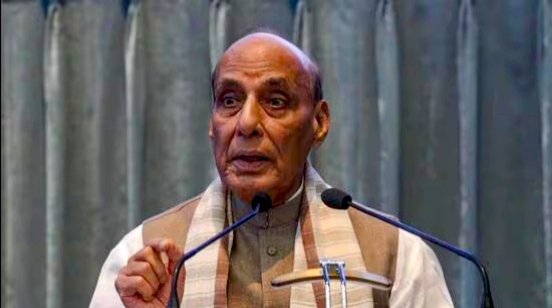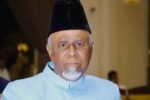PIB: In a significant address, Raksha Mantri Shri Rajnath Singh emphasized the critical importance of self-reliance in defense in the current global landscape marked by terrorism, pandemics, and regional conflicts. The Raksha Mantri stated that achieving self-sufficiency in defense is not just an option but a necessity for the nation’s survival and progress.
Self-Reliance as a Pillar of National Security
Addressing a gathering at a defense seminar, Shri Rajnath Singh stressed that in today’s era of geopolitical instability and security threats, India must aim to develop and maintain its own defense capabilities. He remarked that global conflicts, whether they be in the form of regional wars, terrorism, or pandemics, have created unpredictable challenges for the security and well being of nations.
He emphasized that India’s defense strategy must move towards self-reliance, focusing on indigenous production, technology, and innovation. This, he pointed out, would not only help the nation in tackling security challenges but also make India a leader in global defense.
Defence Modernization and Indigenous Capabilities
Rajnath Singh highlighted the government’s focus on modernizing India’s defense sector and making it atmanirbhar (self-reliant). The Raksha Mantri noted that Make in India has become a cornerstone of India’s defense policy, and several defense production programs have been launched to achieve this goal.
He mentioned that India’s defense industry is already on the path of rapid transformation with increased investments in research and development (R&D), collaboration with private players, and development of advanced defense technologies. From fighter jets to artillery systems, the Indian Armed Forces are increasingly relying on indigenous defense solutions to enhance operational readiness.
The Raksha Mantri also cited India’s progress in manufacturing critical defense equipment such as Advanced Light Helicopters (ALH), INS Vikrant, and Tejas fighter jets, as a testimony to the country’s growing self-reliance in defense.
Addressing Emerging Security Threats
Shri Rajnath Singh pointed out the shifting nature of global security threats. Terrorism, he said, remains one of the biggest challenges, particularly in the wake of increasing cross border terrorism and proxy wars. India, he remarked, is facing direct and indirect security threats on multiple fronts, and to counter these threats effectively, the country needs to have a self-reliant defense system capable of responding to any kind of aggression.
He stressed that cyber warfare, artificial intelligence (AI), and space-based defense systems would play crucial roles in shaping future defense strategies, making technological advancement and self-sufficiency even more critical.
Strategic Partnerships and Global Cooperation
While emphasizing self-reliance, Rajnath Singh also noted that India will continue to build strategic defense partnerships with countries across the world. He acknowledged the importance of collaborations with key allies, such as the United States, Russia, and France, to enhance India’s defense capabilities. However, he asserted that these collaborations should complement India’s efforts toward self-sufficiency rather than replace them.
He added that the country’s defense exports are also on the rise, with India increasingly supplying defense equipment to nations around the world. This is not only strengthening India’s defense but also positioning it as a global player in the defense industry.
Focus on Innovation and Technology
The Raksha Mantri emphasized that innovation and technological advancement should be at the heart of India’s defense strategy. He mentioned that Defense Research and Development Organisation (DRDO), along with private sector companies, has been playing a critical role in designing and developing cutting-edge defense technologies that would ensure India’s preparedness to face emerging challenges.
He also highlighted the government’s commitment to improving military infrastructure, increasing the defense budget, and ensuring that defense personnel receive the best training and equipment.
Conclusion: A Call for Unity and Vigilance
Shri Rajnath Singh concluded his address by calling for unity among the people of India to achieve the goal of self-reliance in defense. He urged that all sectors of society, including the private industry, academia, and government, must work together to strengthen India’s defense and security framework.
He reminded that in today’s world, defense is not just about having a strong military but also about building resilience and self sufficiency in the face of unpredictable threats. India, with its large and growing defense industry, should aim to become a global leader in defense manufacturing and a nation capable of safeguarding its sovereignty and security.
In conclusion, self-reliance in defense is no longer a choice but an imperative for India’s security, survival, and progress in an era of constant threats and challenges.















